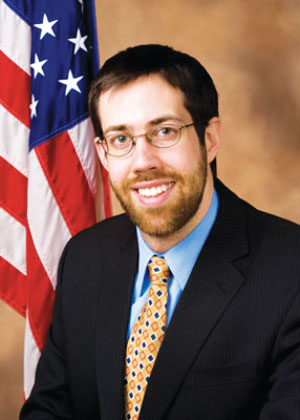
BY DUSICA SUE MALESEVIC | It was once an unpopular idea, but some feel its time has come.
State Sen. Daniel Squadron showed up at Community Board 1’s Battery Park City Committee meeting on Nov. 2 to make his case for the city taking control of the Battery Park City Authority, which the city could do for $1 — and assuming the authority’s debt.
At the meeting, Squadron joked about an August op-ed wrote in this newspaper calling for the B.P.C.A. to be taken over by the city.
“I’m going to ask everyone to put the op-ed away, then I will be quizzing you on it,” he said.
Squadron has been pushing the idea for years, and when he first broached it in 2012, residents were skeptical. But this week he found a much more receptive audience.
Over the past year, the B.P.C.A. has made several decisions that have raised the ire of the community, such as replacing Michael Fortenbaugh as the operator of North Cove Marina with Brookfield Office Properties, opening the permitting process for the ballfields, the ouster of longtime Battery Park City Parks Conservancy leader Tessa Huxley — and most recently, hiring private security guards with no enforcement power to replace most the city’s Parks Enforcement Patrol.
“I was shocked, by the way, when it happened,” Squadron said of the authority’s decision to privatize security. “That’s not something that you see happening a lot of other places.”
Squadron is quick to point out that his beef is not with the board’s members, but rather its structure, and sometimes aloof decision-making process.
“It’s not about any individual set of people who are running the authority,” he said. “It’s about over time how we can ensure what’s most important for the community. I believe that now that Battery Park City is no longer a development project, that we need much more local control.”
Squadron said the authority’s books are healthy — maybe too healthy to remain under the state’s control. In 2009, the B.P.C.A. was tapped for $200 million to close a hole in the state budget.
Lawmakers in Albany should not be able “to raid it as personal piggy bank whenever they want to,” he said.
Surplus money from the authority also goes to fund affordable housing throughout the city, but Squadron contends that local control would make sure more of the money generated by the B.P.C.A. remains in the city.
Squadron also said if the city takes control, he would want to see changes to the board’s structure to include more residents to represent the community.
The city has so far shown little interest in the proposition, but Squadron’s renewed call may already be having an effect on the board.
The B.P.C.A. sent Martha Gallo, a longtime Battery Park City resident and the sole community representative on its six-person board, to the meeting to make the case for keeping the authority under the state’s control. It was the first time she has attended a meeting of the committee.
Gallo said she understands residents’ frustration with the authority, but argued that the problems could be ironed out through better communication.
“Battery Park City Authority has lived through many changes of leadership. It’s lived through many crises,” she said. “We need to focus on the results. The process when it comes to structured community input needs improvement. You can’t communicate with the community through the issuance of [requests for proposals].”
To improve communication, she said the B.P.C.A. recently decided to hold quarterly meetings with the community. The first one will be on Dec. 16 at 6 River Terrace.
While Gallo is for improved dialogue between the residents and the authority, she is not for a change from state to city control, saying that such a dramatic change could jeopardize what the community already has.
“In Battery Park City, we have built a neighborhood that has endured 35 years — plus,” she said. “I do not want to put that construct at risk.”
















